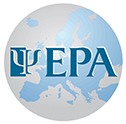Emergency Psychiatry
Section committee
 BEEZHOLD Julian Neil
, Chair
BEEZHOLD Julian Neil
, Chair
Section mission
This Section's mission is to:
Members of the section are psychiatrists working in different fields of mental health at Universities, Hospitals and other Health Care System Units. However, the target section is to include emergency medicine physicians and other professionals involved in mental health prevention interested in the complex differences in approaches to emergency psychiatry linked to social evolutions, immigration, women and children violence, welfare crisis due to economic reasons.
The aim of the Section is to address the developing challenges to emergency psychiatrists in this second decade of the 21st century, indicating growing areas such as natural and human induced disasters, victims of genocide, human violence and terrorist attacks,. A considerable range of topics can be treated, including substance abuse, commitment, aggression, PTSD, EMDR, suicide, catastrophes. A particular attention must be dedicated to different European legislation about the use of restraint systems and civil commitments.
The Section seeks to better define emergencies and urgencies in Psychiatry and to differentiate which kind of violence has to be considered as induced by psychopathological conditions or a derivate of “human being”.
The in progress Italian experience (i.e. the University Department of Mental Health in Turin) includes services of drug and alcohol addiction, adolescence, psychology, psychiatric emergencies and PTDS treatments. Interaction with mental health and drug services may be a topic to be discussed and compared at European level.
Thus, because some items of Emergency Psychiatry could be considered as cross cultural, certainly strong collaboration with other Sections may be considered.
Key issues of Emergency Psychiatry
- The clinical implications of emergency psychiatric care
- Emergency psychiatry in urban areas
- Different and cross cultural models of intervention
- Deinstitutionalisation, treatment of acute psychiatric disorders, commitments, reclusion and restraint.
- Community treatments as an alternative to psychiatric hospitalization
- Trends and guidelines in contemporary psychiatric emergency services
- Reflections on different emergency psychiatry policies in Europe
Section objectives
- To share information of different practices and legislation in different parts of Europe
- To compare clinical service, different practices, research, training and policy across Europe
- To promote training and the continuing education of health professionals about crisis and emergency mental health care
- To encourage research in all aspects of crisis and emergency psychiatric care
- To stimulate recruitment into the field of emergency psychiatry
- To exchange information among the members of the association
- To realize a network for exchange of ideas, policy development and for research
- To enhance partnerships and alliances with other EPA sections and national and international associations dedicated to emergency psychiatry
- To network with other organisations, with a focus on catastrophes
- To reduce seclusion and psychopharmacological intervention in the initial crisis onset
